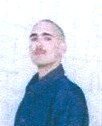

By Daniel Treglia
Located just a few miles from the Oregon border is a prison tucked into the redwood forest known as Pelican Bay. It’s said that Pelican Bay was designed to house the “worst of the worst,” by creating conditions that severely limit, if not completely cut off, all five senses from human contact. Ultimately, time and reality would eventually reflect that the worst of the worst was not the humans it contained in its torture chambers but rather the conditions it inflicts and those who carry out its infliction.
There is little known to the public about the specific conditions we endure on a daily, yearly and infinite basis in what the “California Department of Corruptions and Revenue” calls the Security Housing Unit (SHU).
Our cells are 8 feet × 10 feet with white painted walls. There are no windows and no fresh air; we can’t see night or day. We can’t hear wind or life. We can’t touch or feel, we can’t taste flavors or see people. This is what is known as sensory deprivation. Sensory deprivation is the mechanism used by the state’s correctional officers to starve our minds of social progress, as a means to break our minds, hearts and spirits.
Because we are far from home, our family and once upon a time friends become distant and eventually nonexistent in some of our lives. While some have outside contact through mail and correspondence, the vast majority of us (including myself) lose our girlfriend, friends, associates and even family.
Our day consists of taking 20 paces out of our cell to another bigger cell, outside in a cement box, to pace like an animal for one hour a day, in what they call “our yard.” We will take the 20 or so paces back to our cell only to be entombed within the four white walls. Everything is cement, and our view is another white wall.
Every 180 days, they escort us in dog chains wrapped around our waist, in handcuffs, to an office. Present is a psych and prison officials. They explain the only way to be released is to debrief (in other words, snitch). They then ask if would you like to debrief; upon your reply to the negative, they state, “You will be retained in the SHU indefinitely and we will see you in 180 days.”
This hearing and process has and will occur for thousands of us in California’s SHUs until three things happen, or shall I say four. One is snitch, and that means for most telling lies about people they don’t like because they have actually nothing to tell. The other is parole. Though I have five years, the vast majority here have life. This leaves the other two choices. Some die through suicide, whereas others die in here of old age. The last one, which is frequent (though not as frequent as debriefing), involves losing your mind because these conditions decompose the brain due to the monotony and sensory deprivation.
So those are the choices—snitch, parole, die or go insane. Because many of us refuse to break under the pressure and tactics once employed on the prisoners of the Korean War of the 1950s, we must endure these conditions forever.
This is why last year the hunger strikes were initiated here in Pelican Bay. To bring our muffled and gagged voices upon all of your ears. To show California, America, what is happening here.
Our protest is far from over. We seek to be treated as humans. Is there anyone out there who will help me spread this word? Is there anyone willing to assist me in bringing light to the eyes of those who don’t know? Through the Internet and other outlets? If so, please write to me and ask any questions you have.
There is a saying that “the degree of civilization can be measured by entering its prisons.” Is this the society we are?
*****
Daniel Treglia may be reached via mail at the following address: Daniel Treglia T66950, PBSP SHU C2-110, P.O. Box 7500, Crescent City, CA 95532.
